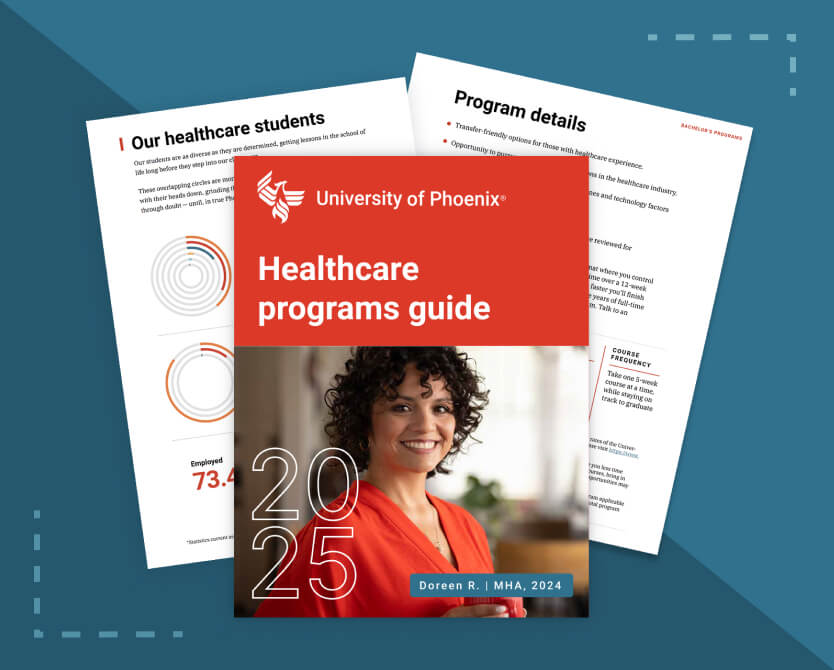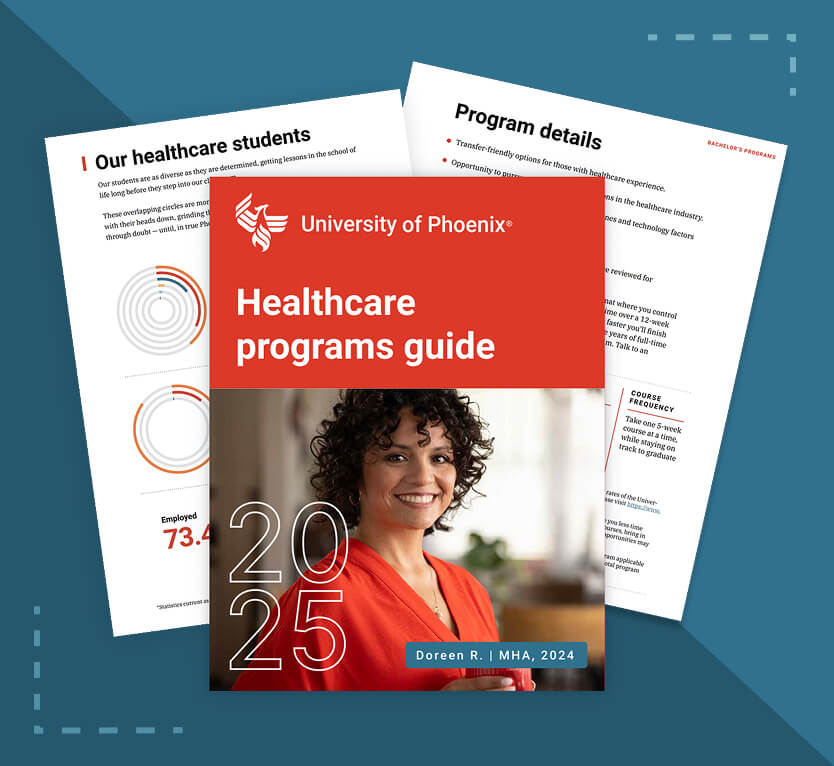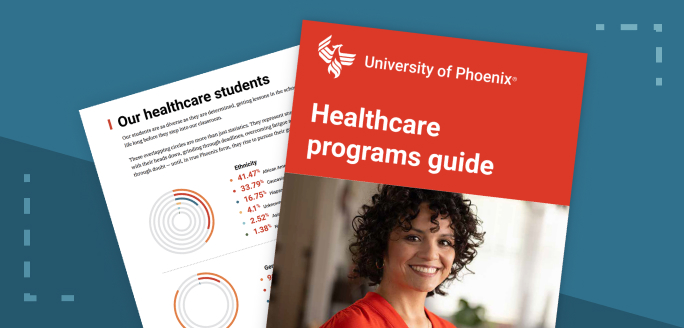Articles > Healthcare > Careers in health informatics
Careers in health informatics

Written by Michael Feder

Reviewed by Mark Jóhannsson, DHSc, MPH, Dean, College of Health Professions

As the need for evidence-based healthcare solutions continues to grow, careers in health informatics offer vast opportunities for specialists to make a tangible difference. Whether an individual’s passion is technical development, data management, or healthcare policy, the field offers a challenging and rewarding pathway for development.
What is health informatics?
Health informatics is a multidisciplinary field of study that combines healthcare, information technology, and data analysis to improve patient care and streamline medical processes. It is a crucial component of modern healthcare because it manages electronic health records, develops systems for improved decision-making, and enables better communication between providers and patients.
Skills needed in health informatics
Health informatics professionals need an extensive set of both hard and soft skills. Whether a professional is overseeing large-scale data collection, analyzing patient data or sharing insights to improve efficiency, health informatics skills play an important role not just in individual career success but also the success of a healthcare facility.
A career in health informatics generally requires developing hard skills in:
- Information technology: This involves the management of information systems, including both software and hardware, that can intelligently communicate, store data and exchange information across a secure network. You should also know how to evaluate new tools and emerging technologies and be able to determine whether they are appropriate for the facility or system.
- Medical records management: You must know how to create, store and deliver confidential patient medical records through electronic or print channels. Professionals must also understand applicable privacy laws and standards for handling this sensitive information, including the Health Insurance Portability and Accountability Act (HIPAA).
- Data analysis: It’s important to understand how to assess and analyze raw data, collected digitally, in ways that can bolster healthcare facility efficiency and improve patient outcomes.
- Troubleshooting: Informatics professionals must know how to engage in ongoing system testing to identify issues, improve functionality and update hardware or software applications.
In addition to hard skills in technology and healthcare processes, it’s also a good idea to develop soft skills in order to work effectively in healthcare and team settings. These include:
- Public speaking: Professionals need to be able to communicate IT-related strategies and concepts to small or large groups of healthcare employees so that they understand their significance and impact.
- Instruction: It's important to be able to explain often complex healthcare informatics processes to doctors, nurses and other facility employees in ways that allow all staff to understand them and retain the information.
- Interpersonal communication: In addition to formal presentations and training sessions, health informatics professionals are often required to informally share information and engage with other team members, office workers and caregivers as they carry out their daily tasks.
These and other health informatics skills help individuals fulfill each aspect of the role.
Where are health informatics jobs?
Health informatics professionals can work in a wide variety of locations. Typically, they find employment with healthcare providers, but certain roles, especially those focused on technology, may be remote.
Professionals may work at a single healthcare facility, such as a hospital, outpatient clinic or nursing home. In other cases, they may work at a private medical research facility or healthcare system.
There are also opportunities to work for agencies or third-party businesses that provide IT services to healthcare organizations. Even government agencies employ health informatics professionals.
How to get started in a health informatics career
Wondering how to break into the health informatics industry? It starts with education. Finding the right healthcare degree is often the first step, because roles in this field rely on core skills in information technology and administration.
One option is to earn a bachelor’s degree focused on healthcare, such as a Bachelor of Science in Health Administration (BSHA) or a Bachelor of Science in Health Management (BSHM). Look for programs that have a health information systems elective track option that aligns with the Certified Associate in Healthcare Information and Management Systems (CAHIMS®) certification, which establishes and demonstrates professional knowledge in healthcare information and management.
After obtaining a bachelor’s degree, you might choose to continue your education by earning a master’s degree in health administration. A Master of Health Administration (MHA), for example, can help provide a foundation to lead in healthcare, teaching about healthcare operations, policies and processes.
Those who already have a healthcare degree or experience in the field may be interested in earning a certificate in health informatics. This is also a good option for those considering a career change. Certificate programs focus on understanding the healthcare environment and provide expertise in technology and informatics, all of which is useful in health informatics roles.
Careers in health informatics
For a career that combines information technology with high levels of personal service, a job that works with health informatics could be ideal.
Potential roles include:
- Health information management director: This role might include recruiting and training health informatics teams, organizing electronic patient and office records, and ensuring technologies align with goals for ensuring healthcare quality and efficiency.
- Health manager: Health managers typically organize, plan and direct health services at an entire facility, clinical department or medical practice. They typically ensure their workplace complies with laws and regulations, create work schedules and train new staff.
Health informatics salaries and outlook
Careers in health informatics often offer competitive salaries, with entry-level positions often exceeding median wages in other healthcare fields. Health informatics salaries depend on several factors. These include the nature of the role, the employer, place of work, education history and degree level obtained and whether a candidate holds active certifications.
As of May 2023, medical and health services managers earned between $67,900 and $216,750, with a median wage of $110,680, according to the U.S. Bureau of Labor Statistics (BLS).
The salary ranges figures are not specific to students or graduates of University of Phoenix. Actual outcomes vary based on multiple factors, including prior work experience, geographic location and other factors specific to the individual. University of Phoenix does not guarantee employment, salary level or career advancement. BLS data is geographically based. Information for a specific state/city can be researched on the BLS website.
Employment for medical and health services managers is projected to grow by 29% from 2022 to 2032, according to BLS. This translates to an estimated 61,400 openings each year. As current medical and health service managers retire or transition into different roles, new managers will be needed to take their places. In addition, as IT processes and technologies develop and electronic health records are more widely used, the increased need for healthcare technology may result in even more health informatics positions.
BLS Occupational Employment Projections, 2022-2032 is published by the U.S. Bureau of Labor Statistics. This data reflects BLS’ projections of national (not local) conditions. These data points are not specific to University of Phoenix students or graduates.
Is a career in health informatics a good fit?
For those interested in a career in healthcare that helps others and exercises a love for technology, health informatics is an option to consider, since it combines both. Before choosing a career in this field, it's important to do research. Get a good sense of which education programs to pursue, what skills to develop and how all of that can align to a career.
Is health informatics a good careerfit? Ultimately, finding the right career path sometimes requires trial and error. Try working with a counselor — or with your university’s career center — to identify potential employment opportunities that align with interests and aptitude.
Education for careers in health informatics
Want to learn more about careers in health informatics? University of Phoenix offers online programs in healthcare that include the following options:
- Undergraduate Health Information Systems Certificate
- Bachelor of Science in Health Administration
- Graduate Health Care Informatics Certificate
Contact University of Phoenix for more information.

ABOUT THE AUTHOR
A graduate of Johns Hopkins University and its Writing Seminars program and winner of the Stephen A. Dixon Literary Prize, Michael Feder brings an eye for detail and a passion for research to every article he writes. His academic and professional background includes experience in marketing, content development, script writing and SEO. Today, he works as a multimedia specialist at University of Phoenix where he covers a variety of topics ranging from healthcare to IT.

ABOUT THE REVIEWER
Currently Dean of the College of Business and Information Technology, Kathryn Uhles has served University of Phoenix in a variety of roles since 2006. Prior to joining University of Phoenix, Kathryn taught fifth grade to underprivileged youth in Phoenix.
This article has been vetted by University of Phoenix's editorial advisory committee.
Read more about our editorial process.




Get your free Healthcare programs guide
Explore our healthcare degrees and certificates - 100% of our programs are aligned to career-relevant skills.
You’re making moves!
This guide is loaded with answers. Download it now or get it from your inbox. Questions? We’re just a call or click away.
Get your free healthcare programs guide. Please enter your first and last name.
You’re making moves!
This guide is loaded with answers. Download it now or get it from your inbox. Questions? We’re just a call or click away.


